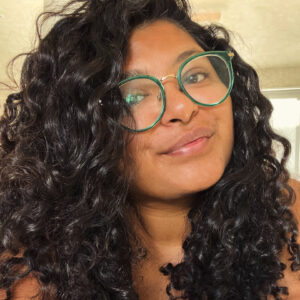With January drawing to a close, I know many of us are looking back at our New Year’s resolutions and wondering what we were thinking.
What convinced us we were going to get up half-an-hour earlier to meditate or work out? Why did we forget about the cold, the dark mornings, and how much we need sleep?Before you decide that your 2025 goal isn’t happening and that you’ll just wait for next year, consider an alternative: What if you kept going and did it imperfectly?
The Problem with Perfect
In 2020, Columbia University reported that while 50% of Americans make New Year’s resolutions, only a quarter of those people stick to them for up to 30 days. The second Friday in January has become known as “Quitter’s Day” because of how many people give up on their resolutions by then.
There are many reasons offered for this, from unrealistic expectations to lack of planning to needing more support and accountability. And tied into most of these reasons is the pursuit of perfection. Even if people accept that incorporating a new routine or building a new skill means improving over time, they’ll still hold themselves to an expectation of perfection. That might look like never missing a day, only counting a certain kind of performance (like the same amount of time or intensity in every attempt), or comparing themselves to someone else who’s doing “better” than them.
These might seem like motivators or high standards, but they’re often ways for perfectionism to sneak into our mindset and interfere with our progress. We end up less motivated and more likely to give up before we can build a foundation for success.
Does this sound familiar? As teachers, helping students make progress is a continual reminder that effort doesn’t require perfection. Whether it’s supporting a student with a new behavioral plan, guiding your class through a complex lesson, or discussing a student’s performance at a family conference, you know that trying matters so much more than perfection.
In fact, perfection usually creates more problems than it solves. When a student — or anyone — focuses on being perfect, they see their imperfect efforts as failures, instead of recognizing them as important first steps.
It doesn’t help that this fixation is based on an impossible standard. Put simply, “perfect” isn’t real.
Granted, it’s a real word. You can find it in the dictionary, and there are technical situations where perfection is measurable. But for the most part, even though people nod in recognition when you say it, “perfect” means something different to everyone. Its definition changes based on what we’re thinking about, who we’re talking to, and how we feel in the moment.
The more we fixate on perfection, the more of a moving target it becomes — we reach for its bar only to nudge it further out of reach and continue the cycle of never achieving enough, always expecting more, and never being good enough.
How are we going to get good at anything when we’re stuck chasing the illusion of perfection?
Teaching Is an Exercise in Imperfection
Teaching should make it clear that perfection is impossible (and not even useful). Think about your classroom. Envision a “perfect” day. Think about your lesson, materials, resources, and students.
Now, add in a copier error or a traffic jam during your morning commute. Maybe the restrooms on your floor are out of order, so your classes have to use the ones by the cafeteria. What about unexpected weather that leaves your school half-staffed for the day?
Our perfect plans can’t account for the surprises and external interference of any given day in the classroom. Yes, routines and consistency are key; they help us keep our feet on steady ground amid the chaos. But it’s important to acknowledge that we cannot control or outplan everything that will affect us.
In other words, there is no perfect plan or perfect teacher.
On the first day of school after winter break, my friend Emma sent a story from her classroom to our group chat. While Emma and her colleagues were focused on welcoming students back to school, one of her sixth-graders was focused on the live, uncaged lizard he brought with him (before you ask: no, he did not bring a backpack, but he did bring a lizard).
Emma has been a teacher for over 15 years. She has children of her own and has accrued countless tales of unpredictable adventures in the classroom. Prior to this text message, I might have said that she couldn’t be surprised anymore. But there was no “In case of free-range lizard” section on her lesson plan.
The group chat (all of us educators) was flabbergasted. I’ve had a bird fly into my classroom twice and I was still stumped.
There’s no perfect response to an unplanned lizard in your classroom. You’re always going to have to respond to the unexpected in this job, and holding yourself to an impossible standard isn’t going to make that easier.
Here are some reminders for when perfectionism sneaks into your expectations:
- Give yourself grace to handle things imperfectly because there are always surprises ahead.
- Tap into the resources around you. If someone in your building is doing something you want to incorporate into your classroom, reach out to them for help. You’re not required to be an expert in everything.
- Most crucially, when you’re faced with imperfection, keep going. Progress comes from taking the next step, even when things don’t go as planned.

Priscilla Thomas
Priscilla Thomas is a writer, editor, and instructional designer with 16 years of experience in NYC public schools and 7 years of experience teaching newcomers to the US. She also served as an adjunct lecturer in programs for pre-service teachers at CUNY-Lehman College and worked with the New York City Writing Project for 11 years to plan and facilitate professional learning for K-12+ teachers of NYC students. Priscilla is passionate about designing instructional materials that support MLLs and offer entry points and opportunities to engage for all kinds of learners. She works with writers as a developmental editor, coach, and community facilitator.




